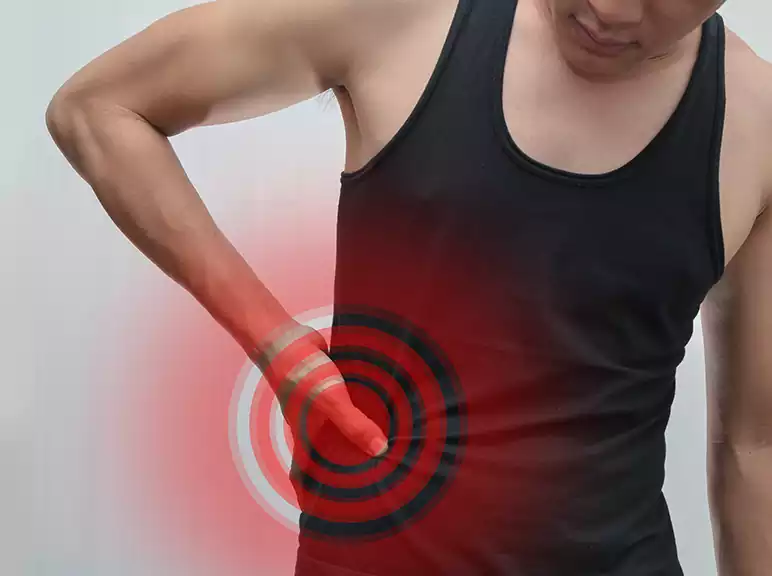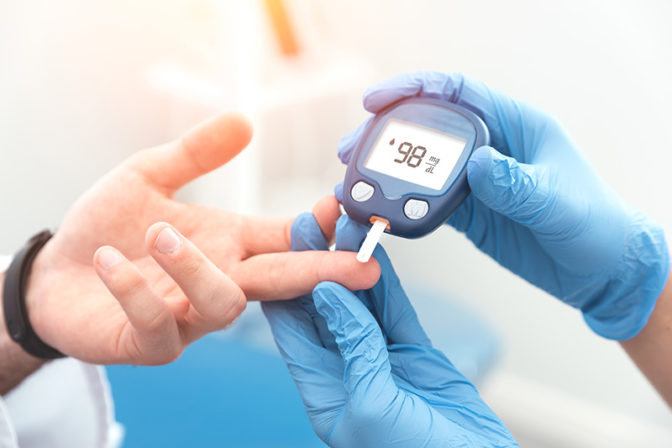Thyroid Disease
The thyroid is a tiny organ that is wrapped around the windpipe (trachea) on the front of the neck. It is shaped like a butterfly, smaller in the centre with two wide wings stretching around your throat. The thyroid is a Gland. You have glands all over your body, creating and releasing substances that help your body to do something specific. Your thyroid produces hormones that help control many of your body’s vital functions.
If your thyroid doesn’t function properly, your whole body can be affected. You can develop a condition called hyperthyroidism when your body makes too much thyroid hormone. It is called hypothyroidism if your body makes too little thyroid hormone. Both conditions are severe, and the healthcare provider must treat them.
What does the thyroid do?
Your thyroid has a significant role in your body — release and control of the hormones that control the metabolism of your thyroid. Metabolism is a process in which your food is transformed into energy. It is issued throughout your entire body to ensure that many systems in your body function properly. Consider your metabolism as a generator. It uses raw energy to power something larger.
What causes thyroid disease?
Hyperthyroidism and hypothyroidism are the two main types of thyroid disease. Both conditions could be caused by other diseases that affect the function of the thyroid gland. Conditions which may lead to hypothyroidism include:
- Thyroiditis: Inflammation (swelling) of the thyroid gland is present in this condition. Thyroiditis may decrease your thyroid hormones.
- Hashimoto thyroiditis: A painless condition, thyroiditis of Hashimoto is an autoimmune disease in which a body’s cells attack and cause thyroid damage. It is an inherited condition.
- Postpartum Thyroiditis: This condition occurs in 4 to 9% of women after birth. Usually, this is a temporary condition.
- Iodine deficiency: thyroid is used to produce hormones with iodine. An iodine deficiency is a problem affecting several million people worldwide.
- A thyroid gland that does not work: Sometimes, the thyroid gland does not function properly from birth. It affects approximately one in four thousand new-borns. If left untreated, the child may have physical and mental problems in the future. In the hospital, all new-borns are tested for their thyroid function.
Conditions which may lead to hyperthyroidism include:
- Graves’ disease: the whole thyroid gland could become overactive in this condition and produce too much hormone. This problem is also known as the diffuse toxic goitre.
- Nodules: hyperthyroidism can be caused by thyroid nodules overactive. A single nodule is referred to as a toxic autonomously operating thyroid nodule, while the toxic multinodular goitre is called a gland with several nodules.
- Thyroiditis: It can be either painful or not felt. The thyroid releases hormones stored there in the case of thyroiditis. It may take some weeks or months.
- Excessive iodine: If you have too much thyroid hormone in your body, the thyroid produces more thyroid hormone than you require. Some medications (amiodarone, heart medication) and cough syrups contain excessive iodine.
Is there a greater risk of developing a thyroid problem if I have diabetes?
If you have diabetes, you are more likely than people without diabetes to develop thyroid disease. An autoimmune disorder is Type 1 diabetes. If you have a pre-existing autoimmune disease, you are more likely to develop another.
The risk is lower for people with Type 2 diabetes, but still there. You are more likely to develop thyroid disease later in life if you have type 2 diabetes. Regular testing for thyroid problems is recommended. Those who have type 1 diabetes can be tested more often — after and every year after diagnosis — than those who have type 2 diabetes. There is no regular test schedule if you have type 2 diabetes, but your health care provider can propose a test schedule over time.
If you have diabetes and receive a positive thyroid test, you can do a few things to make you feel the best. The following tips include:
- Getting adequate sleep.
- Regular exercise.
- Take a proper diet.
- Take all your medicines as directed.
- Get periodically checked by your health care provider as instructed.
What common symptoms of thyroid disease can occur?
There are several symptoms you could have with thyroid problems. Unfortunately, thyroid symptoms often resemble signs of other medical conditions and life stages. That can make it hard to know whether your symptoms are entirely related to a thyroid problem or something else.
The effects of thyroid disease can mostly be divided into two groups: thyroid hormone symptoms (hyperthyroidism) are too high, and thyroid hormone symptoms are too low (hypothyroidism).
Symptoms of an overactive thyroid (hyperthyroidism) comprise:
- Experiencing irritability, anxiety, and nervousness.
- Having difficulty in sleeping.
- Losing some weight.
- Having a goitre or an enlarged thyroid gland.
- Having muscle weakness and tremors.
- Experience irregular menstrual periods or no menstrual cycle
- Feeling sensitive to heat.
- experiencing eye irritation or vision problems
Symptoms of an underactive thyroid (hypothyroidism) comprise:
- fatigue or feeling tired
- Gaining weight.
- Tendency to forget things.
- Having heavy and frequent menstrual periods.
- Having coarse or dry hair.
- Having a hoarse voice.
- Experience intolerance to extreme temperatures
Can problems with thyroid make me lose my hair?
Hair loss could be a sign of thyroid problem, specifically hypothyroidism, of thyroid disease. Please speak to our health care professional whenever you decide to develop hair loss and are worried about it.
Can thyroid problems cause convulsions?
Thyroid problems do not cause seizures in most cases. However, if you have very severe cases of undiagnosed or treated hypothyroidism, your risk of developing low sodium serum will increase. It could lead to convulsions.
Department of Internal Medicine
Book An Appointment
Related Post








